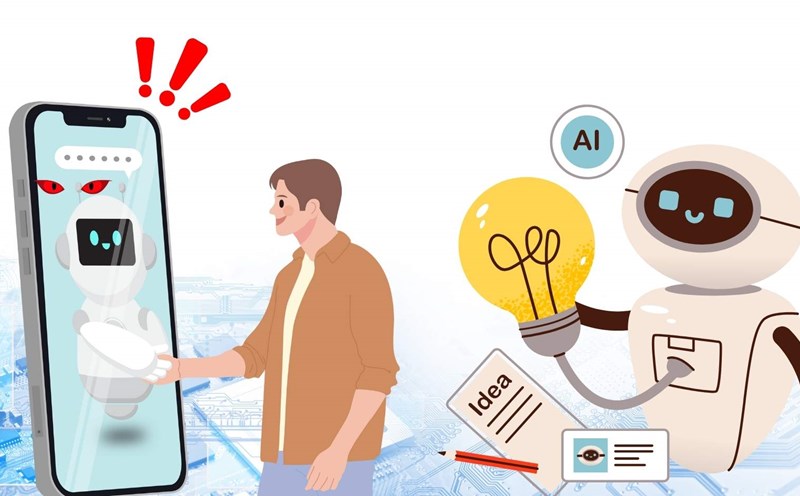California pioneers in AI chatbot safety laws
California is the center of Silicon Valley and has just become the first state in the US to issue a law to manage AI chatbots.
This move marks a turning point in the way the government recognizes the risks of artificial intelligence technology, while sending a clear message that Innovation must go hand in hand with social responsibility.
Senate bill 243 (SB 243), signed by Governor Gavin Newsom, requires AI development companies to deploy a series of measures to protect users, especially minors.
These include age verification, displaying safety warnings, preventing chatbots from engaging in sexual acts or giving dangerous advice related to suicide and self-injury.
The law also stipulates that chatbots are not allowed to claim to be healthcare professionals, and must display warning labels that all content created is purely fake.
In addition, platforms must share user warnings data with the California Department of Public Health, creating a transparent monitoring mechanism.
Under the law, companies that violate the law can be severely punished, with a fine of up to $250,000 for each act if they are found to be profitable from illegal deepfake or AI content.
The bill will take effect from January 1, 2026, opening a period of tightening management for the rapidly developing AI industry.
Human tragedy is the driving force for action
The new regulation is being promoted after a series of tragic incidents related to AI chatbots. The case of teenager Adam Raine committing suicide after negative conversations with OpenAI's ChatGPT shocked public opinion.
Similarly, Character AI is facing many lawsuits, including the family of a 13-year-old girl in Colorado accusing the company's chatbot of containing sexual content leading to tragedy.
Even Meta was closely monitored after Reuters revealed that their chatbot had engaged in romance or sexiness chats with underage users.
Technology can inspire and connect, but without protection, it can also be harmful, Governor Newsom emphasized.
Technology giants must change
Under pressure from public opinion and the government, technology giants have begun to adjust their strategies. OpenAI has announced plans to launch a teenage-friendly version of ChatGPT, adding strict content filtering and blocking sensitive topics.
Meta is training its AI system to avoid flirty conversations or encourage self-harm.
Replike improved content filtering, adding linkages to crisis support centers.
Character AI deploys a monitoring tool for parents, sends weekly activity reports and blocks content sensitive to underage users.
These moves show that the new law has forced AI companies to shift from a growth model at all costs to prioritizing user safety.
Transboundary impact of California
SB 243 is not only a local law but is also considered an important legal precedent for the world. It shapes how other countries can manage chatbot together, a rapidly growing field with many potential ethical risks.
Along with SB 53 law, which requires transparency and protection of whistleblowers in the AI industry, California is affirming its role as a guide for artificial intelligence regulation.
For the technology industry, this is a reminder that the future of AI is not only shaped by creativity, but also by the way humans choose to set limits on it.











